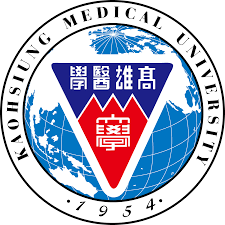I hold a degree in Biological Sciences, followed by a Master's in Life Sciences, focusing on the molecular evolution of neuroreceptors. I completed my PhD with a primary research emphasis on autoimmune diseases, specifically studying the role of T cells in these conditions.I have three years of postdoctoral research experience and applied for the National Science Council Research Scholar Program after obtaining my PhD, receiving the Independent Postdoctoral Research Scholar Award.
Since February 2016, I have been an Associate Professor in the Department of Medical Science at Kaohsiung Medical University. I have nine years of teaching experience, primarily in immunology, and I also serve as a mentor for medical students. Additionally, I am responsible for the mandatory course "Introduction to Medical Research," aimed at fostering future physician-scientists, where I invite distinguished scholars from both domestic and international institutions to deliver lectures. I also lead medical students in conducting research, sharing valuable insights along the way. Furthermore, I assist with teaching related to immunology.
The lab is located on the 3rd floor of the Medical Research Building (MR307) at Kaohsiung Medical University. Our research focuses on tumor immunity and metabolic immunity. For inquiries, you can contact us via email at mhlin@kmu.edu.tw or by phone at 07-3121101 ext. 2150-20 or 11. Our team includes a PhD student, three master's students, and a medical student, all dedicated to advancing our understanding in these critical issues.
Our laboratory focuses on investigating the critical role of the mannose receptor in immune cells within the context of cancer, fatty liver disease, and obesity. By examining the expression and function of the mannose receptor, we aim to uncover how it modulates immune responses and influences disease progression. Utilizing advanced methodologies such as flow cytometry, gene editing techniques, and animal models, we explore the role of the mannose receptor in various immune cell types and its associated signaling pathways. This research not only enhances our understanding of the complexities of the immune system but also has the potential to provide important scientific insights for developing novel therapeutic strategies, ultimately improving the prognosis for related diseases.
Teaching Awards
2023: Excellent Performance in Teaching Evaluation
2022: Excellent Performance in Teaching Evaluation
2021: Excellent Performance in Teaching Evaluation
2020: Excellent Performance in Teaching Evaluation
2019: Excellent Performance in Teaching Evaluation
2018: Excellent Performance in Teaching Evaluation
2017: Outstanding Performance in Teaching Evaluation
2016: Good Performance in Teaching Evaluation
2015: Special Excellence in Teaching Evaluation
Administrative Awards
2019: Excellent College Tutor
Academic Awards
October 2024: Excellent Award for Patent Certification in 2023
October 2022: Excellent Award for Faculty Research Project in the 2021 Medical School
August 2022: Research Grant from the Foundation for Liver Disease Prevention and Treatment in the 111th Year
November 2020: Special Award for Outstanding Research Paper from the Tsai Ruixiong Health Care Foundation for a paper published in March 2019
May 2012: International Award from the Japanese Association for Laboratory Animal Science (JALAS) in 2011
March 2012: Excellent Poster Award at the 27th Joint Annual Meeting of Biomedical Sciences
December 2011: First Place in Oral Presentation Award at the Annual Meeting of the Chinese Association for Laboratory Animal Science
Ph.D. in Immunology
Institution: National Defense Medical Center, Institute of Medical Science
Advisor: Professor Huey-Kang, Sytwu
Year: 2012
Master of Science
Institution: National Tsing Hua University, Department of Life Science
Advisor: Professor Wei-Yuan, Chou
Year: 2001
